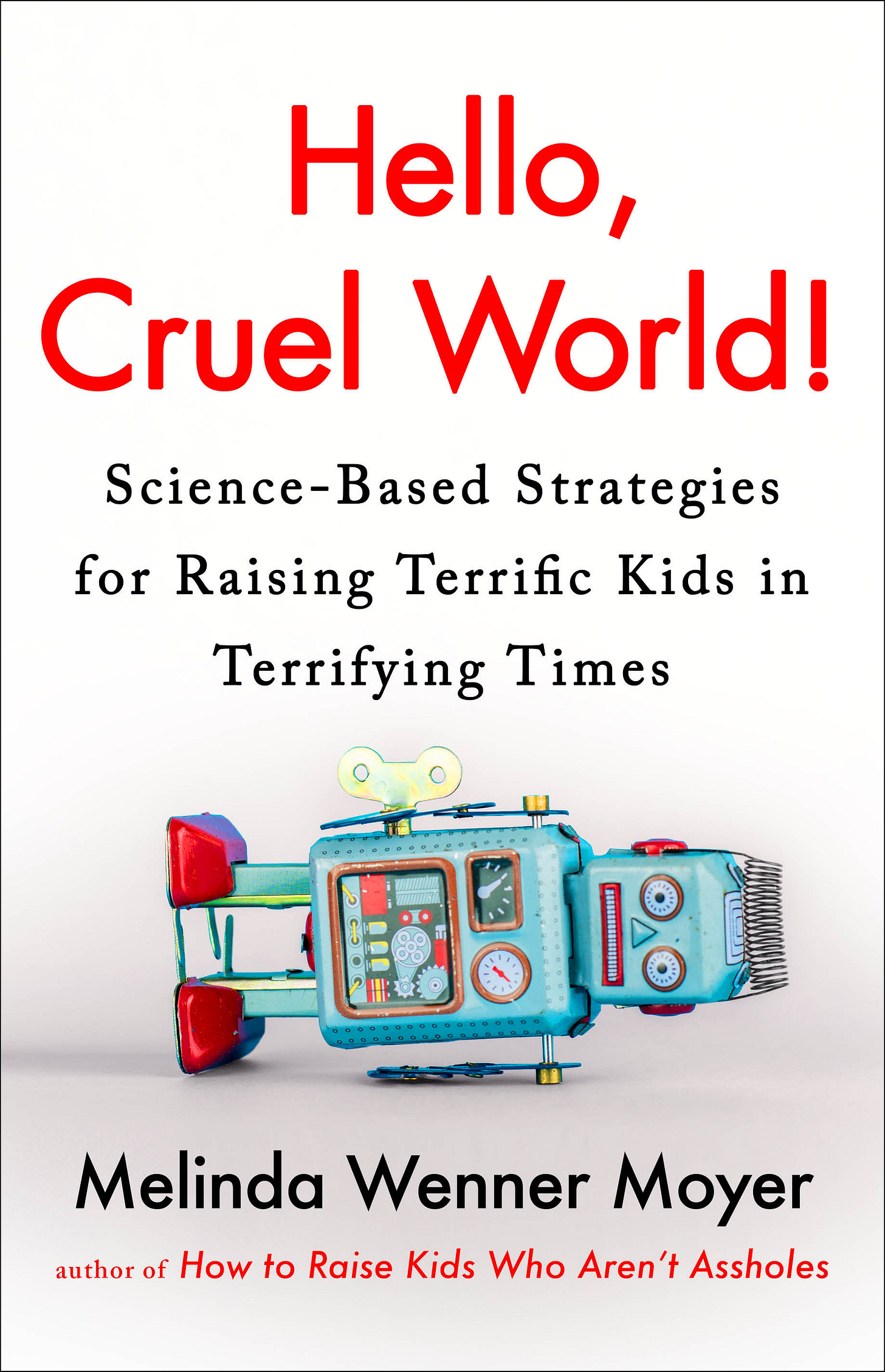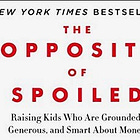"Anything Mentionable Is Manageable."
On overcoming our fear of hard conversations. Plus: don't miss my Mother's Day Sale!
A quick reminder that I’m running a 25% off sale through this Sunday! Treat yourself, or someone else, to the gift of good email. Now What would make a wonderful Mother’s Day gift!
My daughter takes a tennis clinic every week, and this week, in the parent waiting area, I overheard two mothers talking.
One was a pilates instructor and was advising the other to consider taking classes at her studio. Then another woman piped up. “Wait, is your pilates studio the one near the” — she paused and added in a whisper — “funeral home?”
I remember feeling so surprised that she couldn’t say the words “funeral home” aloud. Surprised, and, honestly, a little sad.
A few weeks ago, on a plane trip, I finally watched the film about Fred Rogers, A Beautiful Day in the Neighborhood, starring Tom Hanks and Matthew Rhys. I know, I’m a few years late on that. It is a beautiful movie, and I loved it. (But if you don’t want to bawl in front of strangers, don’t watch it on an airplane.)
The scene that has stuck with me the most is near the end, when Mr. Rogers visits the home of the other protagonist’s father, who doesn’t have long to live and is surrounded in bed by immediate family. The dying dad is invited by a family member on a trip, and he replies: “Count me in…. If I’m still here.”
Immediately, silence descends. Nobody knows what to say in response to his overt reference to death. Everyone looks uncomfortable. Then Mr. Rogers speaks. He says:
You know, death is something many of us are uncomfortable speaking about. But to die is to be human, and anything human is mentionable. And anything mentionable is manageable. Anything mentionable is manageable.
It’s a beautiful scene; I encourage you to watch it if you haven’t:
Seeing this, I was reminded of yet another scene I recently watched, on the FX show Dying for Sex. It’s a fantastic show based on a true story of a young woman, Molly Kochan, who has terminal cancer. In the final episode, a hospice care worker named Amy sits down and explains the process of death, in great detail, to Molly, her best friend, and her mom.
You can see everyone in the scene grapple with the information, wishing they didn’t have to hear it — but you can also see their relief as they start to wrap their heads around what’s to come and death loses a bit of its terrifying mystery. It’s clear that they find the conversation difficult, but also helpful and meaningful. Here’s that poignant scene, which may also (sorry?) elicit tears:
Back to Mr. Rogers. I love that phrase, everything mentionable is manageable, and I’m thinking maybe it should be my new parenting mantra. Because it has to do with a lot more than death. He’s saying that everything that is part of the human condition can and should be talked about, and that open conversations can make these issues easier to navigate. I checked, by the way, whether Fred Rogers actually uttered these words, and according to PBS, he said something very similar:
Anything that's human is mentionable, and anything that is mentionable can be more manageable. When we talk about our feelings, they become less overwhelming less upsetting and less scary.
This is true. We know from the research that putting feelings into words quells their intensity and reduces activity in emotion-focused regions of the brain.
But talking about tough things is about more than just managing feelings. It’s also about sharing our values and wisdom. There are so many issues that are central to our experiences as humans — death, sex, sexuality, gender, skin color, prejudice, disability, privilege, and so on — that we often avoid talking about with each other and with our kids. And this does no one any favors. From a parenting perspective, when we avoid these tricky and nuanced topics, we only make it harder for our children to understand them and manage them. Research has found, for instance, that adults whose parents hadn’t talked to them about death as kids had a harder time coping with loss compared with people whose parents had discussed death.
Of course, we should be careful not to overwhelm our kids or share things with them that aren’t age-appropriate. Every child is different, and every situation is different. But most of the time, there are age-appropriate ways to talk to kids about feelings, death, sex, sexuality, gender, skin color, prejudice, disability, privilege — pretty much anything.
If something feels impossible to talk about, you can start with open questions. You could ask your child: “Have you ever heard of [sex, prejudice, privilege]? What do you know about it?” Or “Just wondering, do you have any questions about [death, skin color, race]?” or “Have you ever noticed [that some people use wheelchairs, that people have different skin colors, that people use different pronouns to describe themselves] — just wondering what you’ve noticed and what you think about it?” Whatever your child says will give you a sense of where they are and what they know and don’t know. It will also give you a minute to think about what you might want to say in response.
Also: it’s OK to simplify. I remember an interview I had once with a psychologist who studies sexual violence; she told me that you can absolutely talk to a kindergartener about pornography if you explain it in terms of nakedness, a concept kids can easily wrap their heads around. That said, simplify doesn’t mean sugar coat. When I interviewed researchers about how to talk to kids about death, for instance, they told me that parents sometimes use unhelpful euphemisms, which may confuse kids. Instead of saying things like “Grandpa went to sleep forever” or “Fluffy has gone to a better place,” we should actually use the word “die” and explain what it means.
All this said, you don’t have to (and really shouldn’t!) say everything at once. You can start a conversation, and then come back to the topic later when you’ve thought more about it. And if you feel like you totally flub things? That’s fine too! That’s honestly kind of great. It’s so helpful for kids to hear us say things like, “you know, I’m not sure that I explained that very well earlier. I want to revise my explanation a little.” That shows kids that it’s OK to not know everything and that it’s OK to revise your thinking. It illustrates a comfort with uncertainty and a sense of curiosity and open-mindedness, both of which are wonderful for us to model.
Here are a handful of articles I’ve written with step-by-step instructions for how to talk to kids about various topics. Of course, there’s no one-size-fits-all approach to these kinds of conversations, and you should always trust your parenting instincts. But I know scripts can sometimes be useful. And please, share any suggestions or thoughts in the comments!













“Anything mentionable is manageable” really stuck with me. It’s so important. We make a point of having open discussions with our daughter, which is hard some times as it can be hard to put things in terms she understands. Last weekend we donated a bunch of clothes so I had to go around many circles to explain what privilege was. I’m sure this conversation will evolve as she grows older.
Thank you for this post. I grew up in a family where we discussed very little and am endeavoring to embark on a different path with my daughter. This can be uncomfortable sometimes (also for my husband, who grew up in a MidWestern, stoic family) and I’m saving this to read again when we need it (and planning to share it again).